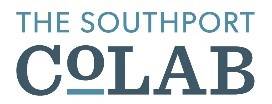Healthy Brain Network EDUCATE Program Looking for participants Dear Friends,...
Read More
October 22
7:30 pm – 9:00 pm EST
Rachel Busman, PsyD, ABPP
Anxiety disorders are among the most common mental health disorders in the United States; 31.9% of adolescents meet criteria for at least one. Additionally, anxiety disorders are on the rise: high school students today have more anxiety symptoms than did teens in the 1980s, and 80% of youth with an anxiety disorder are not receiving treatment. Without effective intervention, anxiety in childhood tends to persist and can lead to additional mental health problems. As students spend approximately 1,000 hours each year in school, school-based professionals play a crucial role in identifying students who are struggling with anxiety and helping students receive appropriate interventions. Social support is key when considering resilience in the time of stress. It is crucial for parents and educators to support children in a variety of ways that promote resilience and bravery.
While the lectures are open to the public, registration is required.



